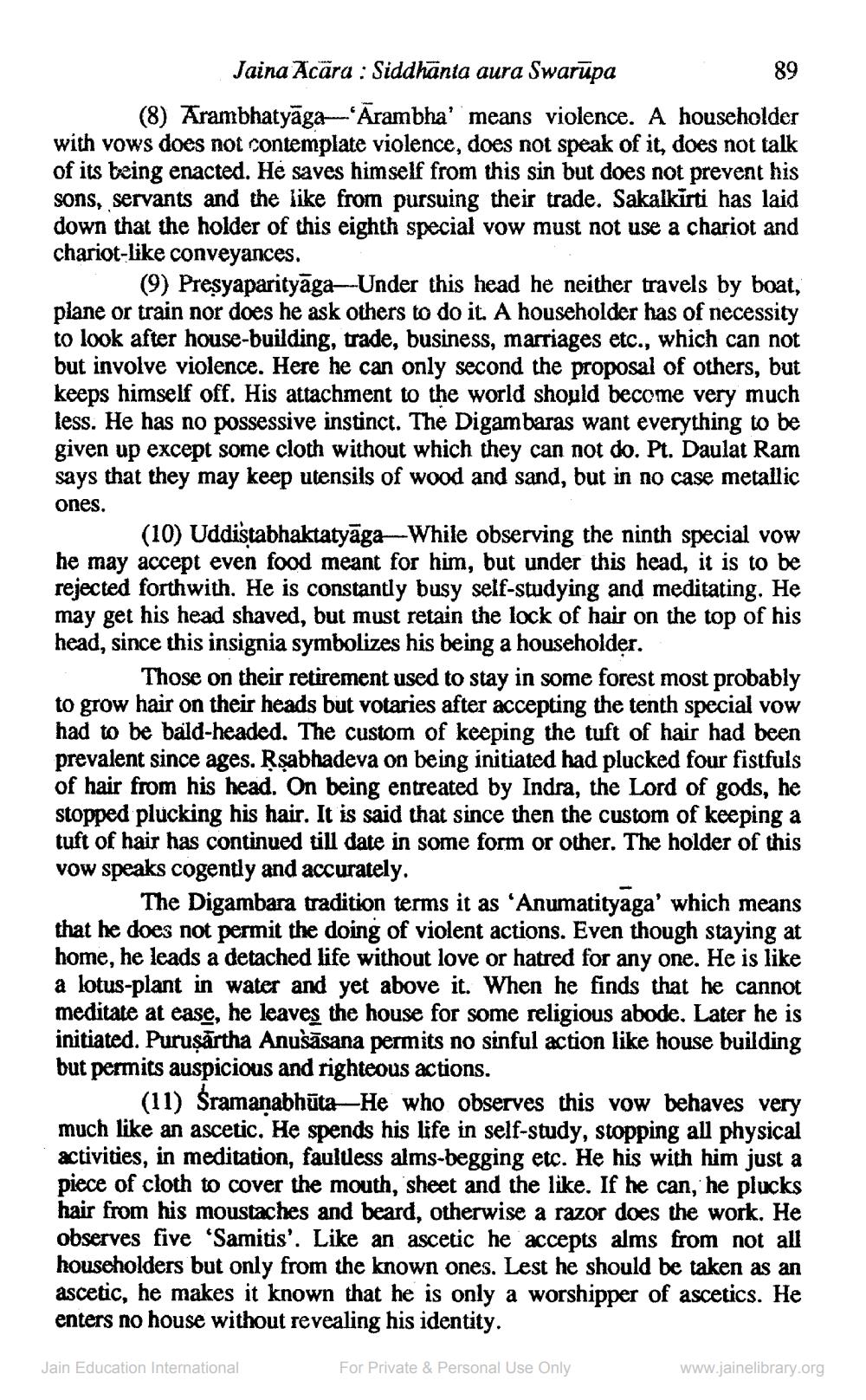________________
Jaina Acara : Siddhanta aura Swarupa
89 (8) ArambhatyāgaĀrambha' means violence. A householder with vows does not contemplate violence, does not speak of it, does not talk of its being enacted. He saves himself from this sin but does not prevent his sons, servants and the like from pursuing their trade. Sakalkirti has laid down that the holder of this eighth special vow must not use a chariot and chariot-like conveyances.
(9) Presyaparityāga-Under this head he neither travels by boat, plane or train nor does he ask others to do it. A householder has of necessity to look after house-building, trade, business, marriages etc., which can not but involve violence. Here he can only second the proposal of others, but keeps himself off. His attachment to the world should become very much less. He has no possessive instinct. The Digambaras want everything to be given up except some cloth without which they can not do. Pt. Daulat Ram says that they may keep utensils of wood and sand, but in no case metallic ones.
(10) Uddistabhaktatyāga-While observing the ninth special vow he may accept even food meant for him, but under this head, it is to be rejected forthwith. He is constantly busy self-studying and meditating. He may get his head shaved, but must retain the lock of hair on the top of his head, since this insignia symbolizes his being a householder.
Those on their retirement used to stay in some forest most probably to grow hair on their heads but votaries after accepting the tenth special vow had to be bald-headed. The custom of keeping the tuft of hair had been prevalent since ages. Rşabhadeva on being initiated had plucked four fistfuls of hair from his head. On being entreated by Indra, the Lord of gods, he stopped plucking his hair. It is said that since then the custom of keeping a tuft of hair has continued till date in some form or other. The holder of this vow speaks cogently and accurately.
The Digambara tradition terms it as 'Anumatityaga' which means that he does not permit the doing of violent actions. Even though staying at home, he leads a detached life without love or hatred for any one. He is like a lotus-plant in water and yet above it. When he finds that he cannot meditate at ease, he leaves the house for some religious abode. Later he is initiated. Puruşārtha Anušāsana permits no sinful action like house building but permits auspicious and righteous actions.
(11) SramanabhūtaHe who observes this vow behaves very much like an ascetic. He spends his life in self-study, stopping all physical activities, in meditation, faultless alms-begging etc. He his with him just a piece of cloth to cover the mouth, sheet and the like. If he can, he plucks hair from his moustaches and beard, otherwise a razor does the work. observes five 'Samitis'. Like an ascetic he accepts alms from not all householders but only from the known ones. Lest he should be taken as an ascetic, he makes it known that he is only a worshipper of ascetics. He enters no house without revealing his identity.
Jain Education International
For Private & Personal Use Only
www.jainelibrary.org




